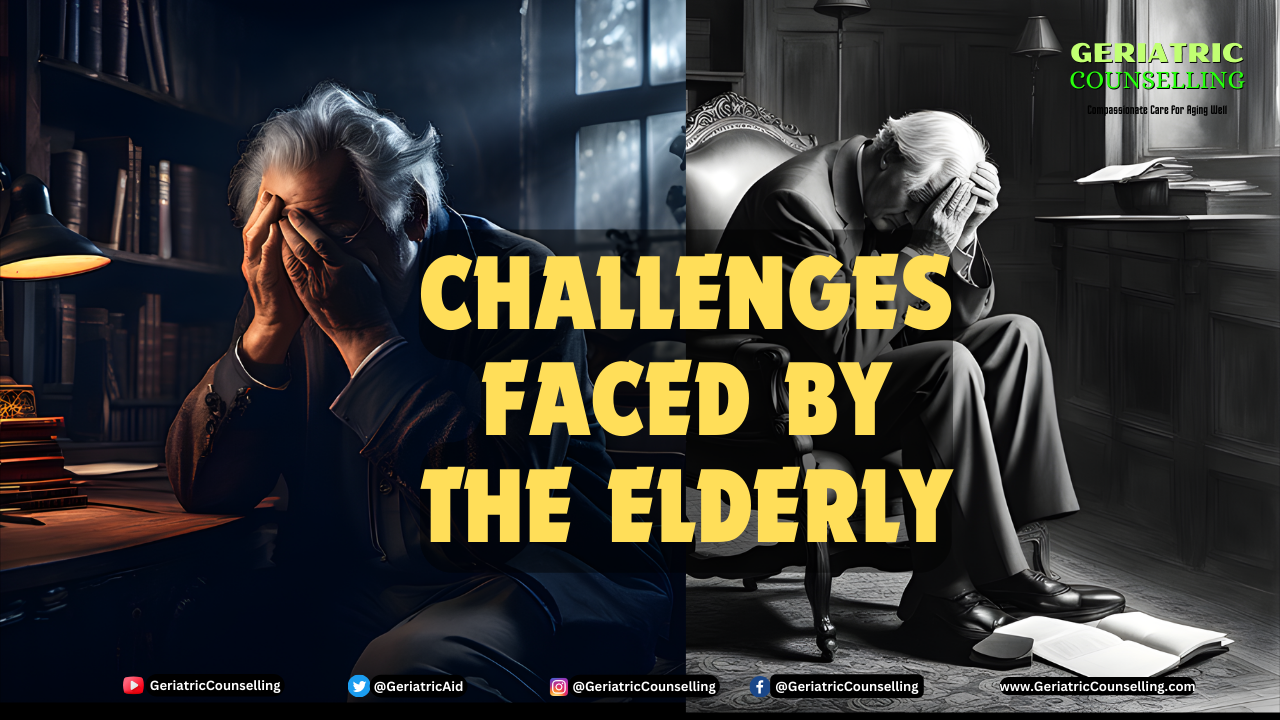Understanding Geriatric Issues and the Challenges Faced by the Elderly
As we age, our bodies and minds go through many changes. Geriatric issues encompass the wide range of physical, mental, emotional, and social challenges uniquely faced by the elderly. Understanding these concerns is key for properly caring for our aging population.
Some common geriatric issues include chronic health problems, dementia, depression, grief, isolation, elder abuse, caregiving needs, and end-of-life considerations. Navigating these difficulties can be hard for seniors and their loved ones. Counselors specialized in working with the elderly provide vital support.
This article explores some of the top geriatric issues and obstacles the elderly confront. It looks at the role counselors play in helping improve seniors’ quality of life despite age-related changes. With compassion and expertise, counselors empower the aging to better manage this later stage of life.
Physical Changes and Health Issues
The body undergoes many natural physiological changes with advancing age that leads to higher risk for certain diseases. Some common age-related physical changes and health issues include:
- Reduced mobility from conditions like arthritis or osteoporosis
- Declining senses of sight, hearing, taste, and smell
- Cognitive changes like slower information processing and memory loss
- Increased risk for heart disease, cancer, diabetes, and stroke
- Weakened immune system making seniors susceptible to infections
- Incontinence problems
- Disrupted sleep patterns where seniors tend to go to bed earlier and wake earlier
Coping with chronic health conditions significantly impacts quality of life for many elderly. Counselors help seniors adjust to new limitations, manage pain and discomfort, obtain needed mobility aids or home healthcare, and reduce feelings of isolation and despair.
Mental Health Concerns
Mental health issues commonly emerge in old age, triggered by biological, emotional, and social factors. Depression and dementia are two main conditions counselors treat.
Many seniors experience grief and loneliness after the loss of a spouse or friends. Retirement can also be an emotionally difficult transition. Feeling disconnected and feeling like life lacks meaning contributes to depression. Counselors provide therapy to help elders process grief, rediscover purpose, and adopt more positive thinking patterns.
The various types of dementia all involve progressive decline in memory, cognition, and behavior. Alzheimer’s disease is one common form. The trauma of witnessing a loved one deteriorate mentally strains family members too. Counselors educate families about the disease process, recommend care options, start difficult end-of-life conversations, and facilitate caregiver support groups.
Abuse and Neglect
Seniors dependent on others for their care sometimes experience abuse and neglect. Warning signs counselors watch for include unexplained bruises, anxiety about being left alone with a caregiver, sudden changes in finances, or significant weight loss. Addressing elder abuse requires reporting to Adult Protective Services and ensuring the senior’s safety.
Social and Caregiving Support
Shrinking social circles due to deaths and declining mobility contribute to elders becoming isolated. Retirement also removes the social connections of the workplace. Counselors help counteract loneliness by arranging visits from outreach services, transportation to senior centers, and home-sharing programs that pair seniors with younger roommates.
Counselors also support caregivers of the elderly, who face heavy burdens managing medications, transportation, finances, hygiene, and other needs of their aging relatives. Respite care, support groups, and teaching coping techniques helps preserve caregiver mental health and prevents burnout.
End-of-Life Concerns
Concerns about death and dying understandably rise in old age. Counselors have important roles related to end-of-life care. They help seniors outline advance directives and establish powers of attorney for healthcare in case they cannot make decisions themselves. Processing grief, finding life closure, and planning funeral arrangements are other counseling services provided at this stage of life.
The many challenges faced in old age, from physical decline to emotional struggles to caregiving needs, emphasize the value of counseling tailored for the elderly. Through compassionate listening, practical assistance, and specialized expertise in geriatric issues, counselors enhance quality of life and dignity for aging individuals. Their support guides seniors through major life transitions and difficulties associated with growing older.
Understanding the unique needs and concerns of the elderly helps communities better care for this growing population. Investing resources into specialized geriatric counseling services both honors older generations for their lifetime contributions and enriches our society as a whole.

Leave a Reply